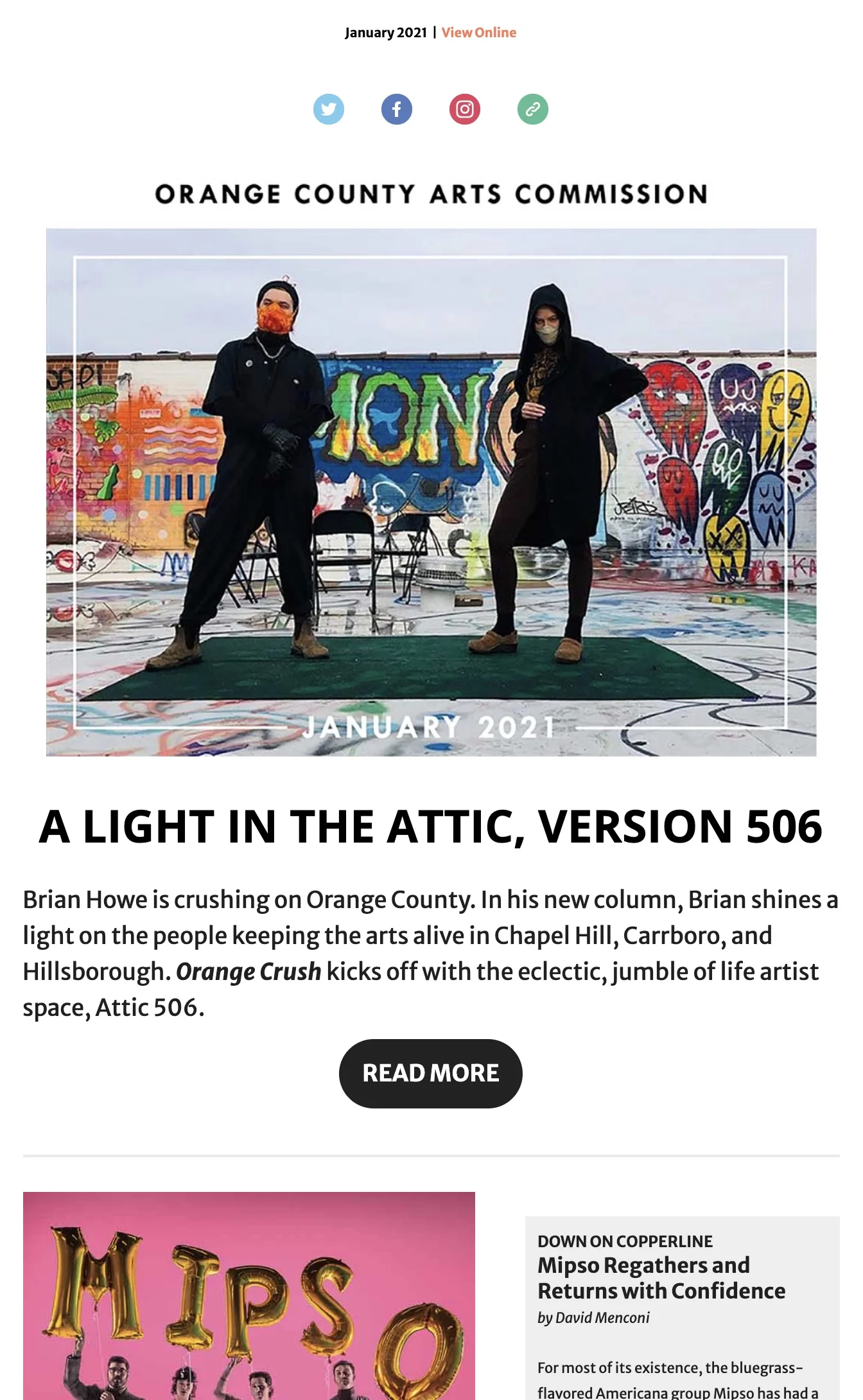—Article by David Menconi
Like most businesses connected to music, Pittsboro’s Manifold Recording has been struggling because of the COVID-19 virus shutdown. Once quarantine went into effect back in March, things slowed way down and have yet to pick back up at the studio.
“I would say we’ve lost approximately half our normal business flow,” says Michael Tiemann of Chapel Hill, who is Manifold’s president and co-owner. “About half of that is people who would have been coming from out of town, and the other half is local folks with no certainty right now.”
But there is also a glass-half-full perspective, in that Manifold is uniquely situated to weather a crisis like this one. Manifold was originally envisioned as a multi-media facility, equal parts performance venue and recording studio. It’s a marvelous place to hear as well as record music, with ample room for spectators, state-of-the-art gear and lavish attention to detail – including physical dimensions based on the Fibonacci sequence and the “golden ratio,” all in service of capturing perfect sound.
Most live-music venues are still shut down from the virus, leaving musicians trying to get by doing performances from home via livestream. Manifold, however, offers a much better option: a place to record live performances (with appropriate social-distance protocols, of course) for on-demand online broadcasting.
“I have some hope that music-concert streaming will become a bigger thing,” says Ian Schreier, Manifold’s chief engineer and producer. “It’s gaining some momentum and I think it will be increasingly important in the future. We’re positioned well to capture that. I’m not sure many other places can capture the level we can for certain kinds of music – especially jazz or classical, unamplified, performed as opposed to assembled, where the acoustics are really important. I’m trying to look for upsides.”
Mallarme Chamber Players was one such recent success. Mallarme recorded its season-ending concert at Manifold on June 24 with a program of works by North Carolina composers, including Grammy/Pulitzer winner Caroline Shaw. The broadcast proved to be quite popular.
“We recorded the concert and then streamed that, with multi-camera angles, lit very respectfully of the classical aesthetic,” says Tiemann. “The results were spectacular. We were able to turn a tragic no-can-do into a performance that has Mallarme reaching out to their subscribers to ask, ‘How many more of these would you like to see?’”
Manifold management is actively pitching the space to other acts for similar live-recording events. They’re also continuing with more conventional studio work, including sound-mixing for recordings and film plus the occasional album-recording project where it’s practical to maintain social distancing.
“Fortunately, it’s a big space with a lot of cubic feet of air,” says Schreier. “There’s breathing room and space for isolation.”
For Manifold, at least, it’s possible that the pandemic quarantine will have a silver lining. It might be the thing that jolts more of the music business in its direction.
“What’s happened over the last year or two in the music business is that audio alone is no longer sufficient to move the needle,” says Tiemann. “Just the music is not enough, nowadays it has to be supported with videos. And we have a space where cameras can exist, and it’s easy to get good footage. Twenty years ago, videos were so horrifically expensive, only major labels could afford them. Now they’re basic-level for artists trying to build an audience.”
